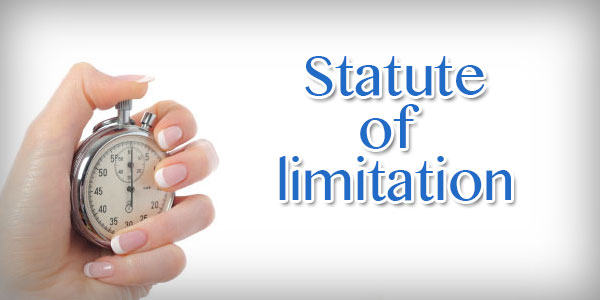
A debt owed by a borrower to a lender is called an obligation. If the loan period is over, then it becomes a liability and that must be paid back to avoid a loss of funds. A lender will look at the term “statute of limitation” and calculate how much time is left before the debtor is not eligible for any more payments.
There are two types of statutes of limitations, namely, contractual limitations and non-contractual. Contractual limits occur when the parties agree on a deadline, whereas the other type of limit occurs without an agreement between the parties.
In accounting terms, statutory periods refer to specific dates or deadlines set by law. These are usually based upon whether the contract is fixed or variable. Fixed contracts have definite due dates, which are determined by reference to events that have already occurred. On the contrary, variable contracts have no established date but are subject to continuous evaluation.
What Is Debt in Accounting?
In order to understand the meaning of “debt” in accounting, you need to know how it’s used. The term “debt” can be applied to any kind of obligation. For example, a company might have a loan from its bank, while another person owes money to his parents.
A business firm that borrows money will use this borrowed money to finance the operation of the business. This means that the lender receives an interest payment in return for loaning the money to the borrower. If the firm doesn’t pay back the loan, then it becomes the responsibility of the lender to collect the money.
This is why it makes sense to say that a company has debts. But what happens when a company does not repay all of the loans that it has taken out? Then, the lenders can take legal action against the company.
If the firm goes bankrupt, then the creditors can try to get their money back. In fact, bankruptcy is usually considered to be one of the most serious forms of financial trouble. A company may declare itself bankrupt if it cannot meet its obligations.
When a company declares that it is in bankruptcy, then it will no longer make payments on its debt. Instead, it will focus on paying off some of its liabilities.
How Does a Debt Work?
When you have a debt, it means that someone owes money to you. When this happens, the person who owes you the money will pay you back. This is how a debt works. If you owe your friend $20, for example, he would give you the money when you ask him.
A debt can be created in different ways. For instance, you could make an agreement with another individual to lend them money. Or, you might sign up for credit cards, which allow you to borrow from financial institutions. You can also buy products on credit, such as a car or a home.
There are many reasons why people get into debt. Some people may have been careless about their finances. Others may have gotten themselves in trouble by spending more than they earn. Still others may find it difficult to save money. Whatever the reason, debts happen all the time.
You should never feel ashamed or embarrassed about having a debt. Instead, you need to learn how to handle your situation. The first step is to understand what exactly a debt is.
If you’re currently struggling to pay off your debt, then you should take action. It’s important that you don’t just sit around and wait for things to improve. You must do something to get yourself out of the hole you’ve dug.
Importance of Debt?
As you know, money matters a lot in life. If you have enough cash on hand, you can buy anything that you want.
But if you don’t, then you need to borrow the money. You might be thinking that borrowing money is bad, but it isn’t.
In fact, there are many reasons why you should get a loan. For example, you could use the extra cash to pay off your debts.
You could also use the money to save up for an expensive purchase.
And you can always use the funds to invest in the future.
When you borrow money, you’re actually putting yourself into debt. But this doesn’t mean that you’ll go bankrupt. In most cases, you will just end up paying back a large sum of money each month.
What Is Debt?
It’s important to understand that when you take out a loan, you are giving someone else your money. This means that you are now in debt.
You may not realize it at first, but this is a very serious situation. When you owe other people money, they own a piece of your financial life.

Pros of Debt in Accounting
When you’re dealing with debt, you have to make sure that you don’t go overboard. If you want to avoid bankruptcy, you need to be careful with your finances. Otherwise, you could end up losing everything.
If you’re thinking about getting into debt, you should know that it’s possible to get yourself in a financial bind. That means that you’ll need to learn how to manage your money wisely.
There are many ways to deal with debt, but one of the best is to pay off the debts slowly. This will help you to save up enough cash so that you can pay back all of the money that you owe.
You also need to be aware of any hidden fees that you might incur. For example, you may find that your credit card company charges you for things like late payments or missed bills. You should never let these kinds of fees add up because they could eventually cause your balance to become unmanageable.
Another way that you can protect yourself from going bankrupt is by learning to budget properly. By sticking to a strict spending plan, you won’t have to worry about running out of money and having to file for bankruptcy.
Cons of Debt in Accouting
You have debts, but you don’t know how to manage them. You’re worried that your credit score will be affected by the amount of debt that you owe. Fortunately, there are ways to make sure that you aren’t taking on more than you can handle. Here’s what you need to know.
When you take on a large amount of debt, it can affect your overall financial health. This is why you should always pay off as much of your debt as you possibly can. The sooner you get rid of it, the better. If you are struggling to keep up with the payments, then you may want to consider using an installment loan.
This type of loan allows you to repay a certain amount each month over a set period of time. In this way, you won’t have to worry about paying interest on your loans. However, there is one thing that you need to be aware of. When you use these types of loans, you’ll also incur fees and other costs. So, before signing any agreements, make sure that you understand all of the terms.
If you find yourself in this situation, then you might want to talk to a professional. A certified public accountant (CPA) is a good person to speak with.

